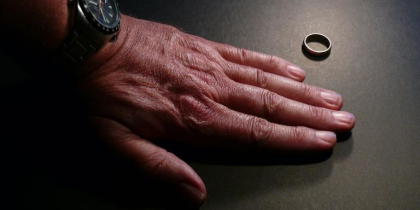Despite claims to the contrary from some circles, the Church has never taught that medicine being tested on fetal cell lines is a significant enough moral issue to skip that medicine. I wrote this up in a semi-academic piece that covers a lot of details but I want to offer a summary for readers here. The Church has clearly taught in her ordinary magisterium that one may reject a vaccine grown on fetal cell lines, but in so doing, she avoided saying a vaccine – or any other medicine – merely tested on fetal cell lines was a sufficient reason to skip that medicine. One can hold the theological opinion that this is sufficient grounds, but the Church asks theologians to clearly distinguish their theological opinions from Church teaching.
I would invite readers who are so inclined to read the full piece but I will offer a summary for the average reader of my blog below.
This piece will explore a very specific question: has the Church ever taught that a medicine being tested on fetal cell lines is a significant enough moral issue to skip that medicine?
I will cover three prerequisites, look at the various teachings on vaccines,… and end with on why this matters.
Prerequisites
There are things the Church says in official magisterial documents. These are official Church teachings. All we will deal with here are ordinary, not extraordinary magisterium so not infallible… Then there are theological opinions which can vary… One can have a theological opinion different from the ordinary magisterium, but an ecclesial spirit would require that it be stated as such not as “magisterium” or “Church teaching.” This is even more so if the Magisterium is silent on the topic…
In a way, almost every act has negative moral consequences that could be considered a moral issue. But some are so small as to be functionally irrelevant in making moral decisions because they are so extremely remote… The issue in the opening question is worded: “a significant enough moral issue to skip that medicine.” Thus, it speaks of a moral issue that is significant enough for some to skip but not significant enough that all Catholics must avoid it. It would also include issues where all must avoid but not an issue so minor that it was never even suggested one might want to avoid it…
This article will limit itself to the issue of fetal cell lines used in testing.
Vatican Statements on Vaccines

The Vatican has made 4 statements on the ethics of vaccines. The Pontifical Academy for Life (PAL) – not magisterium – made statements in 2005 and 2017. The Congregation for the Doctrine of the Faith (CDF) – magisterium – made statements in 2008 and 2020. All but the 2017 statement clearly point to an ethical issue that may make Catholic choose not to use a vaccine grown on or produced using fetal cell lines. I cannot see any arguing that fetal cell line testing is “a significant enough moral issue to skip that medicine.” [I will only cover the two CDF statements here: read the PAL statements in the original.] …
Dignitas Personae
Dignitas Personae in 2008 was the first magisterial document to address vaccines produced on fetal cell lines. The relevant quote: “Grave reasons may be morally proportionate to justify the use of such ‘biological material.’ Thus, for example, danger to the health of children could permit parents to use a vaccine which was DEVELOPED using cell lines of illicit origin.”… Two things… are worth noting.
First, “grave reasons” is being used to justify most using the rubella vaccine (part of the MMR) when rubella kills about 1 in 5,900 vs. 1 in 50-200 for COVID. If rubella is sufficiently grave, a disease 30x deadlier a fortiori has sufficiently grave reasons to justify its use.
Second, the word “developed” in English could be ambiguous as referring to production alone or also tests before production. However, versions in other languages make it crystal clear that “developed” means produced and does not include vaccines only tested on fetal cell lines…
2020 CDF Statement on COVID Vaccines
The only magisterial statement I can see that might refer to vaccines tested on fetal cell lines is in this document: “It is morally acceptable to receive Covid-19 vaccines that have used cell lines from aborted fetuses in their research and production process.”…
Later, after noting that vaccines are voluntary, it speaks of the ethics of those not vaccinating: “Those who, however, for reasons of conscience, refuse vaccines produced with cell lines from aborted fetuses, must do their utmost to avoid, by other prophylactic means and appropriate behavior.”… It is also worth noting that it only foresees Catholics skipping vaccines produced/grown on fetal cell lines over remote cooperation, and thus indicates those could be boycotted by Catholics. It does not mention those developed using cell lines or those tested on cell lines. Vaccines tested on fetal cell lines had just been approved when this document was posted, so if the Vatican wanted to include them here, they could have. The exclusion of vaccines tested on fetal cell lines appears to be a conscious decision, not a mere afterthought…
We return to the original question: “has the Church ever taught that a medicine being tested on fetal cell lines is a significant enough moral issue to skip that medicine?” Unless someone can show me a document I missed, the answer must be in the negative.
Why This Matters
This matters because many people have stated their theological opinion as though it were Church teaching. This is very confusing to the faithful especially when done by people who are called to explain such things to the faithful. This also shows a lack of ecclesial spirit or dishonesty on their part in misrepresenting what the Church teaches.
For example, the National Catholic Bioethics Center (NCBC) vaccine exemption template letter states: “An individual Catholic may invoke Church teaching to refuse a vaccine developed or produced using abortion-derived cell lines.” As it has been established above that the Church has never taught there is a significant enough moral issue to refuse a medicine tested or developed on a fetal cell line, such a Catholic could only invoke Church teaching for “a vaccine produced using abortion-derived cell lines.” I fully support Catholics who make such a determination as ones not grown on a fetal cell line are available as a more ethical option…
The NCBC is free to hold this as a theological opinion and present it to the faithful as such. However, they should not present what is a theological opinion as if it were Church teaching. I personally question this theological opinion as a certain degree of appropriation of evil is impossible to avoid so should not become a reason for avoiding otherwise good acts. For example. I would question renouncing US citizenship because the original 13 colonies had legal slaves and testing on a fetal cell line is on that kind of level of remote appropriation…
I do not intend to solely attack the NCBC here as I have seen similar things on popular Catholic websites and from clergy. However, the NCBC has a special importance in not misrepresenting Church teaching.
Conclusion
Church teaching clearly indicates that being grown on a fetal cell line is a significant enough moral issue that one is free to boycott a vaccine in certain circumstances, and it would seem to apply to other medicine if this came to pass. However, there is no Church teaching saying the same about vaccines or any other medicines if merely tested on fetal cell lines. This should lead US and Canadian Catholics to prefer the Moderna and Pfizer vaccines over those offered by Johnson & Johnson or Astraeneca (the last one only in Canada now). However, the astronomically remote connection with abortion is not a reason for a Catholic to skip the Moderna or Pfizer vaccine. If you want to see more about how remote this connection to abortion is, see these pieces.Even one of the NCBC statements I critiqued above notes, “Being vaccinated can be an act of charity that serves the common good.” In fact, I would go beyond “can be” to “Being vaccinated is, in the vast of majority of cases, an act of charity that serves the common good.”
If you are so inclined, feel free to read the more extensive piece. I tried to grab a few sections so my average reader could get the point.









